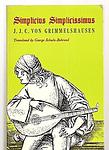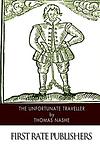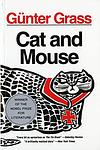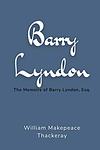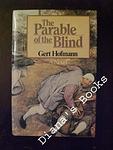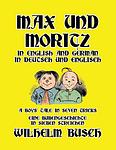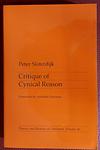The Greatest "Germany, Satire" Books of All Time
Click to learn how this list is calculated.
This list represents a comprehensive and trusted collection of the greatest books. Developed through a specialized algorithm, it brings together 300 'best of' book lists to form a definitive guide to the world's most acclaimed books. For those interested in how these books are chosen, additional details can be found on the rankings page.
Genres
The category of "Germany" in terms of books would encompass literature that is set in or about Germany, its history, culture, people, and society. This could include works of fiction, non-fiction, memoirs, biographies, and historical accounts that explore various aspects of German life, such as the country's politics, economy, art, music, literature, and more. The category would be of interest to readers who are fascinated by Germany's rich and complex history, its contributions to world culture, and its ongoing role in shaping global affairs.
Satire is a genre of literature that uses humor, irony, and exaggeration to criticize and ridicule human vices, follies, and shortcomings. It is a form of social commentary that aims to expose the flaws and absurdities of society, politics, and culture. Satirical books often employ sarcasm, wit, and parody to challenge the status quo and provoke thought and reflection in readers. Satire can be both entertaining and thought-provoking, and it has been used throughout history as a powerful tool for social and political critique.
Countries
Date Range
Reading Statistics
Click the button below to see how many of these books you've read!
Download
If you're interested in downloading this list as a CSV file for use in a spreadsheet application, you can easily do so by clicking the button below. Please note that to ensure a manageable file size and faster download, the CSV will include details for only the first 500 books.
Download-
1. The Magic Mountain by Thomas Mann
In this novel, the protagonist, a young, ordinary man, visits his cousin at a tuberculosis sanatorium in the Swiss Alps. Intending to stay for only a few weeks, he ends up remaining there for seven years, becoming a patient himself. The book explores his experiences and relationships with other patients and staff, delving into philosophical discussions on life, time, and the nature of disease. It also provides a vivid portrayal of the European society and intellectual life on the eve of World War I.
-
2. Slaughterhouse-Five by Kurt Vonnegut
The novel follows the life of Billy Pilgrim, a World War II veteran who has become "unstuck in time," experiencing his life events out of order. This includes his experiences as a prisoner of war in Dresden during the Allies' firebombing, his post-war life as a successful optometrist, his abduction by aliens from the planet Tralfamadore, and his eventual death. The book is a critique of war and a demonstration of the destructive nature of time, with a nonlinear narrative that reflects the chaos and unpredictability of life.
-
3. Candide by Voltaire
"Candide" is a satirical novel that follows the adventures of a young man, Candide, who is living a sheltered life in an Edenic paradise and being indoctrinated with Leibnizian optimism by his mentor. When he is expelled from the paradise for kissing a baron's daughter, he embarks on a journey around the world, witnessing the horrors of war, natural disasters, and human cruelty. Throughout his journey, Candide maintains his optimistic philosophy, despite the constant hardships he faces, ultimately concluding that one must cultivate their own garden, a metaphor for taking control of one's own destiny.
-
4. The Tin Drum by Günter Grass
The novel tells the story of Oskar Matzerath, a boy who decides on his third birthday that he will stop growing and remain a three-year-old forever. Oskar is gifted with a tin drum by his mother, which he uses to express his emotions and thoughts. Living in Danzig during the rise of Nazi Germany, Oskar's refusal to grow is a form of protest against the adult world. The book is a blend of magical realism and historical fiction, providing a unique perspective on the horrors of World War II and the post-war era in Germany.
-
5. Gravity's Rainbow by Thomas Pynchon
Set during the end of World War II, the novel follows Tyrone Slothrop, a lieutenant in the U.S. Army, as he tries to uncover the truth behind a mysterious device, the "Schwarzgerät", that the Germans are using in their V-2 rockets. The narrative is complex and multi-layered, filled with a vast array of characters and subplots, all connected by various themes such as paranoia, technology, and the destructive nature of war. The book is known for its encyclopedic nature and its challenging, postmodernist style.
-
6. Jakob Von Gunten by Robert Walser
This novel is a first-person account of a young man who leaves his privileged life to enroll at a school for servants in Berlin. The protagonist's observations and experiences in the school, his interactions with the headmaster and other students, and his internal struggles and reflections form the crux of the story. The narrative, imbued with irony and dark humor, explores themes of power, submission, individuality, and the absurdity of societal norms and expectations.
-
7. Simplicius Simplicissimus by Hans Jakob Christoffel von Grimmelshausen
"Simplicius Simplicissimus" is a satirical novel set during the Thirty Years War in Germany. It follows the life of the protagonist, a naive and simple peasant boy, who is forced to become a soldier. As he journeys through the war-torn land, he encounters various adventures and misadventures, and through these experiences, he gradually loses his innocence and gains a deeper understanding of the world and human nature. The book offers a poignant critique of war and society, highlighting the absurdity and brutality of the human condition.
-
8. The Life and Opinions of the Tomcat Murr by E. T. A. Hoffmann
This novel is a satirical critique of society and the arts, told from the perspective of a highly intelligent and cultured tomcat named Murr. Murr writes his autobiography, displaying his views on life, art, and human nature, while also inadvertently including fragments of a biography of a musician friend. The narrative alternates between Murr's witty observations and the tragic life of the musician, creating a unique blend of humor and pathos.
-
9. The Unfortunate Traveller by Thomas Nashe
"The Unfortunate Traveller" is a picaresque novel that follows the adventures and misadventures of a young man named Jack Wilton, who goes through various escapades across Europe during the reign of Henry VIII. As a page to the Earl of Surrey, Jack encounters a variety of characters and experiences, including wars, imprisonment, and love affairs. The novel is notable for its vivid depiction of the social and political conditions of the time, as well as its pioneering use of the English language.
-
10. Professor Unrat by Heinrich Mann
The novel is a social critique of bourgeois society in Germany during the Wilhelmine period, as seen through the life of an authoritarian and morally rigid school teacher. The protagonist becomes infatuated with a cabaret dancer, leading him to abandon his duties and societal norms, and eventually descend into madness. The book explores themes of obsession, social class, and the destructive power of repressed desire.
-
11. Cat and Mouse by Günter Grass
"Cat and Mouse" is a novel that centers around a group of boys living in Danzig during World War II. The story is narrated by one of the boys, who recounts the life of his friend, whom they call "the great Mahlke", a boy with a large Adam's apple. Mahlke's attempts to prove himself a hero despite his physical oddity, his obsession with a sunken ship, and his eventual expulsion from school and enlistment in the war form the heart of the narrative. The novel explores themes of identity, guilt, memory, and the devastating impact of war on the individual and society.
-
12. The Clown by Heinrich Böll
Set in post-World War II Germany, the novel follows the life of a professional clown who is in a personal crisis after being left by his long-term girlfriend. The protagonist, who is unable to find work due to his political views, spends a day reflecting on his life, his broken relationship, and the harsh realities of the society around him. The narrative offers a stark critique of Catholicism and the economic miracle in post-war Germany.
-
13. The Memoirs Of Barry Lyndon by William Makepeace Thackeray
The novel is a satirical account of a young Irishman's opportunistic rise to wealth and status, and his eventual fall from grace. The protagonist, born into modest circumstances, uses his wit, charm, and unscrupulous behavior to mingle with European nobility and climb the social ladder. Throughout his adventures, he engages in duels, gambling, and romances, while his fortunes ebb and flow. His narrative, filled with irony and dark humor, exposes the hypocrisies and corruptions of 18th-century aristocratic society, ultimately leading to his imprisonment and reflective decline, as he pens his memoirs.
-
14. Germany, a Winter Tale by Heinrich Heine
"Germany, a Winter Tale" is a satirical epic poem that criticizes the political and social state of Germany in the 19th century. The narrative follows the author's journey through his homeland, where he encounters various figures and situations that embody the cultural and political issues of the time. The author uses humor and irony to expose the hypocrisy, corruption, and stagnation in German society, while also expressing his longing for a more progressive and enlightened future.
-
15. Dog Years by Günter Grass
"Dog Years" is a novel set in Germany during the rise and fall of the Nazi regime and the aftermath of World War II. The story is told from the perspectives of three friends: Walter Matern, a fervent Nazi supporter; Eduard Amsel, a Jewish artist who creates scarecrows; and Harry Liebenau, who narrates their stories. The novel explores the complexities of friendship and identity amidst the backdrop of war, guilt, and redemption. It also delves into the psychological impact of the Holocaust on German society and the struggle to come to terms with its horrific past.
-
16. Halftime by Martin Walser
"Halftime" is a thought-provoking novel that explores the life of a successful businessman who, in the midst of his midlife crisis, begins to question the meaning and purpose of his life. As he grapples with his own mortality and the emptiness of his achievements, he embarks on a journey of self-discovery, seeking to reconcile his past and present and find a new path forward. The book delves deep into the human psyche, offering a profound exploration of existential crises, personal transformation, and the quest for authenticity.
-
17. Sartor Resartus by Thomas Carlyle
"Sartor Resartus" is a satirical philosophical novel that presents itself as a commentary on the autobiography of a fictional German philosopher named Diogenes Teufelsdröckh. The narrative, ostensibly edited by an unnamed British reviewer, explores Teufelsdröckh's life and his treatise on the philosophy of clothes, which serves as an allegory for the human condition and society. Through a blend of humor, digressions, and existential inquiry, the book delves into themes of identity, the nature of reality, and the search for meaning in a seemingly inscrutable universe. The work challenges the reader to decipher the layers of satire and to reflect on the role of cultural constructs in shaping human experience.
-
18. The Parable of the Blind by Gert Hofmann
"The Parable of the Blind" is a darkly comedic novel that follows six blind men who are hired to pose as models for a famous painter's depiction of a biblical parable. As they journey to the painter's studio, they struggle with their dependence on each other and the outside world, grappling with the limitations and challenges of their blindness. The narrative explores themes of human vulnerability, the nature of perception, and the absurdity of existence.
-
19. The Loyal Subject by Heinrich Mann
"The Loyal Subject" is a satirical novel set in Germany during the reign of Kaiser Wilhelm II. It follows the life of a petty bureaucrat who is obsessively devoted to the Kaiser and the state, despite the fact that his loyalty is constantly abused. His blind obedience and the absurdity of the system are used to critique the militarism and authoritarianism of the period. The story is a powerful indictment of the dangers of unchecked nationalism and the dehumanization that can result from excessive obedience to authority.
-
20. Sudelbücher by Georg Christoph Lichtenberg
"Sudelbücher" is a collection of thoughts, observations, and philosophical reflections by a prominent German satirist. The book is a compilation of his personal notebooks, where he jotted down everything from scientific observations to social commentary and personal introspection. The author's unique perspective and witty voice provide a fascinating glimpse into the mind of an 18th-century scholar, making this book an important piece of German literature and Enlightenment thought.
-
21. Siebenkäs by Jean Paul
The novel is a complex, satirical love story set in provincial Germany during the late 18th century. The protagonist, a poor and idealistic lawyer, is trapped in an unhappy marriage with a shrewish wife. To escape his miserable existence, he fakes his own death and assumes a new identity. The book is filled with philosophical musings, humorous anecdotes, and vivid descriptions of rural life, reflecting the author's unique blend of realism and romanticism.
-
22. The Harz Journey And Selected Prose by Heinrich Heine
This book is a captivating collection that showcases the keen observations and witty prose of one of the 19th century's most influential German poets and essayists. At its heart is a travelogue that offers a vivid account of the author's journey through the Harz Mountains, blending romantic descriptions of the landscape with sharp social commentary and personal reflections. Alongside this journey, the collection includes a selection of the author's prose, highlighting his critical essays, satirical pieces, and lyrical writings. Through these works, the author critiques the political, social, and cultural climate of his time, all while demonstrating his profound literary talent and innovative approach to narrative and form.
-
23. Max And Moritz by Wilhelm Busch
This classic German children's book, written in rhymed couplets, tells the story of two mischievous boys who engage in seven pranks, causing chaos and trouble in their village. Their antics range from tormenting animals to playing cruel jokes on the local inhabitants. However, their mischief eventually leads to a grim fate, serving as a cautionary tale about the consequences of bad behavior. The book is renowned for its humor, satirical tone, and the moral lessons it imparts, making it a staple of children's literature and an influential work in the genre of comic strips and graphic storytelling.
-
24. Critique Of Cynical Reason by Peter Sloterdijk
The book provides a deep exploration of cynicism as a pervasive and influential mindset in contemporary society, tracing its evolution from the classical cynicism of antiquity to its modern form, which the author describes as "enlightened false consciousness." The work delves into the philosophical, social, and psychological dimensions of cynicism, examining how it serves both as a defense mechanism and a form of social critique. Through a blend of philosophical analysis, cultural commentary, and historical insight, the book challenges readers to understand and confront the cynical attitudes that pervade modern culture and to consider the possibilities for genuine sincerity and commitment in a seemingly disenchanted world.
-
25. Die neuen Leiden des jungen W. by Ulrich Plenzdorf
This novel tells the story of a young man from East Germany who rebels against the societal norms and expectations of his time. The protagonist, a skilled worker, flees from his apprenticeship and his home to Berlin, where he isolates himself in a summer house, devoting his time to his passions of reading and listening to Western music. Using the narrative style of a psychological confession, the book explores themes of youthful rebellion, the search for identity, and the conflict between individual desires and societal pressures. The protagonist's tragic end underlines the oppressive nature of the East German regime.
Reading Statistics
Click the button below to see how many of these books you've read!
Download
If you're interested in downloading this list as a CSV file for use in a spreadsheet application, you can easily do so by clicking the button below. Please note that to ensure a manageable file size and faster download, the CSV will include details for only the first 500 books.
Download





